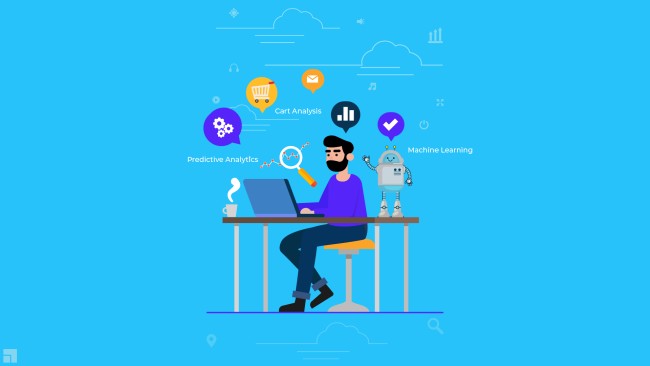
In today’s fast-paced world, businesses and individuals must make informed decisions. Having the ability to predict outcomes and trends can provide an advantage accurately and contribute to achieving success. This is where AI and predictive analytics play a role.
AI, also known as Artificial Intelligence, is the simulation of intelligence in machines. These machines are programmed to think and learn like humans.
It is an evolving field that aims to create systems capable of performing tasks that typically require human intelligence, such as speech recognition, problem-solving, and decision-making.
In this rapidly advancing domain, staying updated with the most popular AI tools is essential for professionals and enthusiasts alike.
One of the applications of AI is predictive analytics. Predictive analytics utilizes AI algorithms to analyze current data to predict events or behaviors. It finds its applications in finance, healthcare, marketing, and manufacturing.
How Does Predictive Analytics Work?
Predictive analytics employs techniques, machine learning algorithms, and historical data to identify patterns and make predictions. The process begins with collecting and refining the data, including records and real-time information.
Once the data has been prepared, predictive models are constructed using machine learning algorithms.
These models undergo training using data to understand patterns and relationships between factors. After that, the models are refined to ensure their accuracy and reliability in making predictions.
These predictive models have a range of applications. For example, they can determine which customers are most likely to stop using a service, predict the demand for products in the quarter, or even forecast whether a patient will develop a particular medical condition.
Such predictions assist businesses in making informed decisions and taking measures to optimize outcomes.
Benefits of AI Predictive Analytics
1. Enhanced decision-making:
AI and predictive analytics offer data-driven insights that aid individuals and businesses in making choices.
By analyzing records and real-time data, these models can uncover trends, patterns, or anomalies that may go unnoticed by humans. This enables decision-makers to anticipate outcomes and take action to achieve favorable results.
2. Increased efficiency:
Predictive analytics automates the process of data analysis and prediction, saving time and resources compared to methods. It eliminates the need for data processing and analysis, allowing organizations to focus on strategic tasks.
Furthermore, using AI-driven models allows for learning and improvement over time, resulting in more precise predictions and favorable business outcomes.
3. Mitigating risks:
Predictive analytics proves valuable in assessing and mitigating risks. By examining data and identifying risk factors, businesses can take measures to implement effective risk management strategies.
For instance, insurance companies can anticipate the likelihood of claims and take preventive actions to minimize losses. Similarly, financial institutions can employ analytics to evaluate borrower’s creditworthiness and reduce the risk of default.
4. Personalization and customer satisfaction:
AI and predictive analytics empower businesses to gain insights into customer preferences, enabling offerings.
Companies can offer recommendations, promotions, and exclusive deals by analyzing customer data such as browsing behavior, purchase history, and demographic information. This not only enhances the customer experience but also fosters loyalty and satisfaction.
5. Driving innovation and gaining an advantage:
Leveraging AI technology alongside analytics equips companies with a competitive edge by enabling them to stay ahead of market trends while making informed business decisions proactively.
Accurately predicting demand empowers companies to optimize their supply chain operations by reducing costs while effectively managing inventory levels without facing stockouts or excess stock.
Moreover, businesses can discover market prospects, assess the success of new products or services, and formulate innovative strategies to surpass their competitors.
Conclusion
AI and predictive analytics have transformed the decision-making process for companies and individuals. By harnessing the capabilities of AI algorithms and analyzing historical and real-time data, predictive analytics can offer valuable insights and accurate forecasts.
The advantages of AI and predictive analytics extend from decision-making and improved efficiency to risk management and personalized experiences. As technology advances, we can anticipate a role for AI and predictive analytics in shaping our future.
